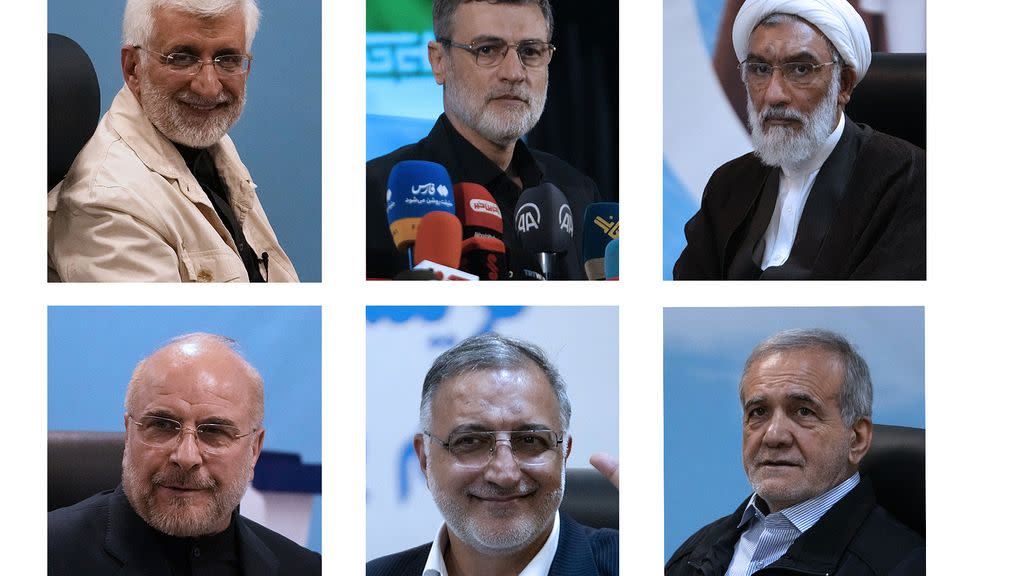Iran names six approved candidates for presidential election

Iran’s Guardian Council, which oversees elections and legislation, on Sunday approved six candidates to run in the country’s 28 June snap presidential election.
The winner will replace the late Ebrahim Raisi who died in a helicopter crash along with seven members of his entourage, including foreign minister Hossein Amir-Abdollahian, in northern Iran last month.
Raisi had been expected to secure another term in office and was seen as a possible successor to 85-year-old Supreme Leader Ayatollah Ali Khamenei.
A total of 80 people applied to become candidates in the election.
Of the six that have been approved, five are considered hardliners and only one is from the reformist camp.
On the list are:
Mohammad Bagher Qalibaf – A hardline parliament speaker and former Revolutionary Guards commander. He is the most prominent candidate.
Saeed Jalili – Ultra-conservative former chief nuclear negotiator who ran Supreme Leader Ayatollah Ali Khamenei's office for four years.
Alireza Zakani - Tehran's conservative mayor.
Mostafa Pourmohammadi - Conservative former interior and justice minister.
Amirhossein Ghazizadeh-Hashemi – Current vice-president and ultraconservative head of the Martyrs’ Foundation.
Massoud Pezeshkian – Former health minister and sole reformist candidate, who is a lawmaker representing Tabriz in Iran’s parliament.
Former president and firebrand populist, Mahmoud Ahmadinejad, known for a crackdown following his controversial 2009 re-election, was again banned from running.
Four women had registered their candidacy but were all disqualified by the council, which is made up of a panel of clerics and jurists ultimately overseen by Khamenei.
The council’s decision represents the starting gun for a shortened, two-week campaign to replace Raisi.
Candidates approved by the Guardian Council suggest Iran’s Shiite theocracy hopes to ease the election through after recent votes saw record-low turnout.
The election comes at a time of heightened tensions between Iran and the West over its arming of Russia in that country’s war on Ukraine, and Iran’s rapidly advancing nuclear programme.


